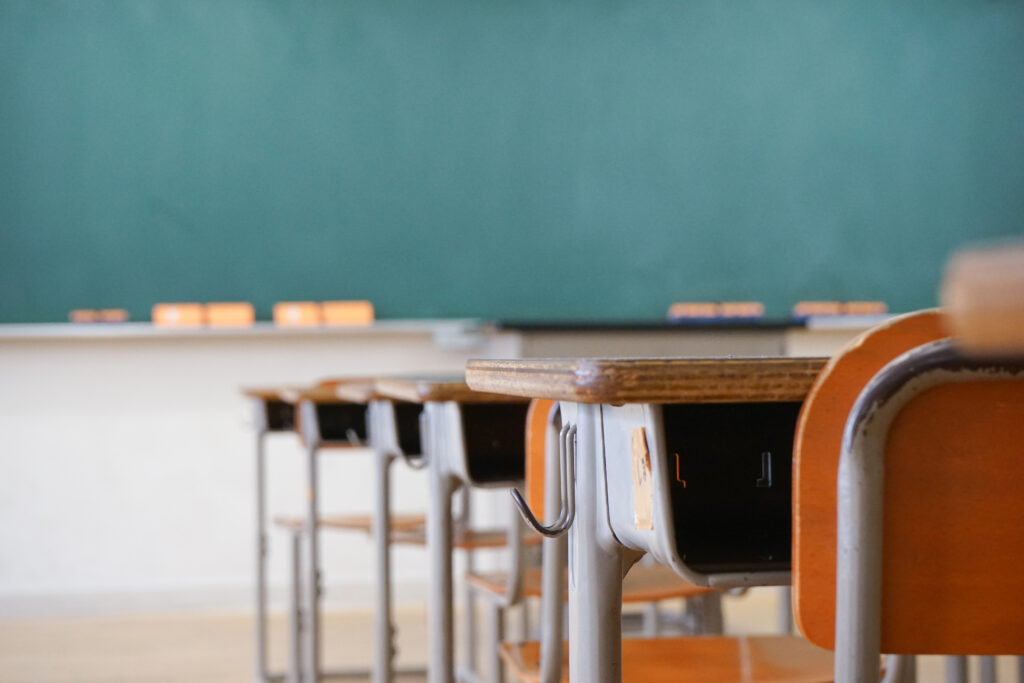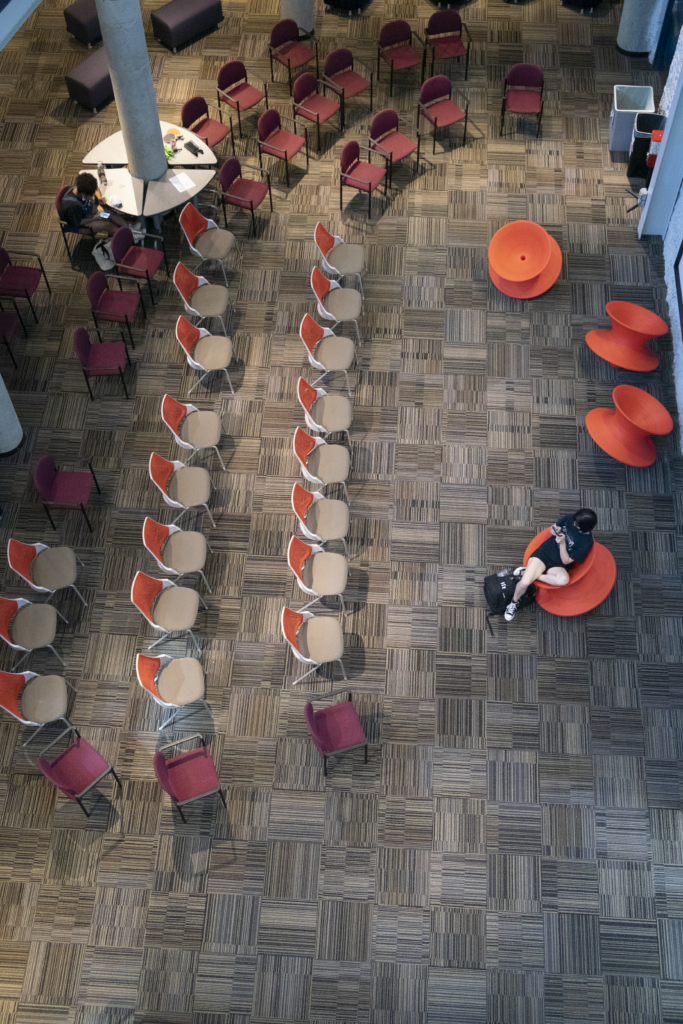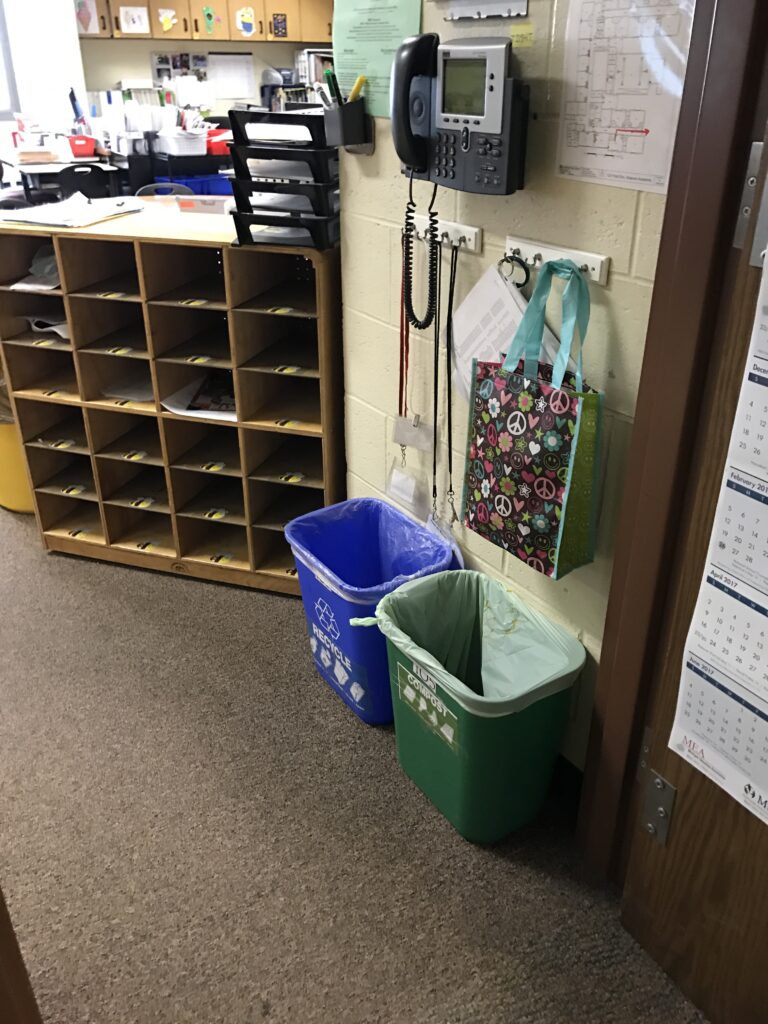Sustainable Business Needs Sustainable Schools
Michigan School Sustainability Corps Planning Project
Sustainable Business Needs Sustainable Schools: Michigan School Sustainability Corps
Throughout our long history of engagement with business and community leaders on sustainability and sustainable business, education has always emerged as a pressing need, with a consensus that systems change starts in Michigan’s K-12 schools.
Whether working to create a circular economy, improve recycling, reduce food loss and waste, promote climate leadership and water conservation, or other priorities, our engagement and a growing body of academic and industry research demonstrate that sustainable business needs sustainable schools.
However, anecdotal evidence suggests Michigan schools lack robust integration of sustainability into our education system. Schools are missing opportunities to develop climate-ready citizens and workers, while enduring unnecessarily high costs, generating excess pollution, and creating less healthy learning environments.


Developing Capacity for K-12 Sustainability in Michigan
The Forum is collaborating with the Michigan Community Service Commission to develop the Michigan School Sustainability Corps as part of the American Climate Corps initiative. We are currently conducting outreach to schools, businesses, and community stakeholders across Michigan in order to better understand the need for and interest in community-based sustainability education and sustainable business practices.
If you are a relevant stakeholder, please follow the appropriate link below for a brief survey:
Problem Statement
Lack of community sustainability integration in our schools is impairing public climate literacy and inhibiting valuable partnerships with formal and informal educators. This gap, exacerbated by limited resources and fragmented responsibility between education and facilities management, stifles the potential for comprehensive sustainability initiatives. In many cases, successful sustainability efforts are driven by passionate individuals, yet without institutional support, they struggle to gain traction. As a result, the integration of sustainability into K-12 education often remains ad-hoc, hindering student and community engagement in shaping a more sustainable future.
Proposed Solution
Embedding sustainability coordinators into K-12 schools, supported by private sector engagement and strategic partnerships, presents an opportunity to bridge this gap. By leveraging AmeriCorps members’ dedication and time, we can address the systemic challenges faced by schools in fostering sustainability. These members can provide essential workforce capacity and expertise to drive sustainability initiatives forward. Their presence can also help institutionalize sustainability efforts within schools, ensuring continuity and long-term impact. Michigan schools can not only enhance their capacity to educate and empower students, but through this approach they can also foster stronger connections with the local community.

Learning from Higher Education
Michigan colleges and universities have been at the forefront of sustainability efforts, with dedicated personnel and strong support from the private sector driving progress. These institutions serve as beacons of innovation, showcasing how sustainability can be integrated into classrooms and curricula.
- Universities provide a roadmap for K-12 schools, offering valuable lessons on program objectives, curriculum integration, organizational structure, and funding strategies.
- By applying the lessons learned from higher education sustainability coordinators, we aim to establish a framework for sustainability initiatives and roles in K-12 schools.
- This strategic approach will ensure that Michigan’s workforce and communities are equipped with the necessary skills and knowledge to promote sustainability and sustainable business practices from an early age.
Learning from Business
Businesses are eager to engage with local schools, not only through volunteer opportunities, but also to support the concerns of team members with school-aged children regarding classroom sustainability practices. Additionally, businesses recognize the potential to enhance recruitment efforts and brand perception by supporting sustainability initiatives in schools.
- Forum members have played a pivotal role in advancing sustainability efforts, having contributed to the establishment of campus sustainability offices and curricula in the past.
- Michigan universities have learned sustainability lessons from the private sector, and still look to its leaders for guidance, highlighting the symbiotic relationship between businesses and educational institutions.
- By collaborating with schools and communities, businesses can contribute to shaping a future characterized by a circular economy, fostering a new generation of change leaders and sustainability champions.
Developing a Program Based on Proven Models
The core concept is modeled after the Sustainable Schools program of the Green Iowa AmeriCorps: A successful AmeriCorps partnership with University of Northern Iowa, this program serves as a resource and catalyst for Iowa school districts in which members work to reduce district-wide energy costs and assist teachers and staff in implementing environmental project-based learning initiatives.
To assess and refine this program design concept, The Forum is utilizing an AmeriCorps Planning grant to determine whether this program matches the needs that we outlined above. It is supported by the consulting team at Farallon Strategies.
We are currently working to understand what scope and availability school districts and local sustainability businesses have
- to provide opportunities to enhance lesson plans,
- to implement project-based learning initiatives,
- to support operational staff on projects,
- and to advance public-private partnerships anchoring schools within regional climate solutions.
We are very interested in engaging any school district or business with an interest or capacity to improve sustainability performance in K-12 education.
For more information or to get involved, contact Director of Statewide Engagement Rose Spickler at rspickler@misbf.org or fill out the appropriate form below.

